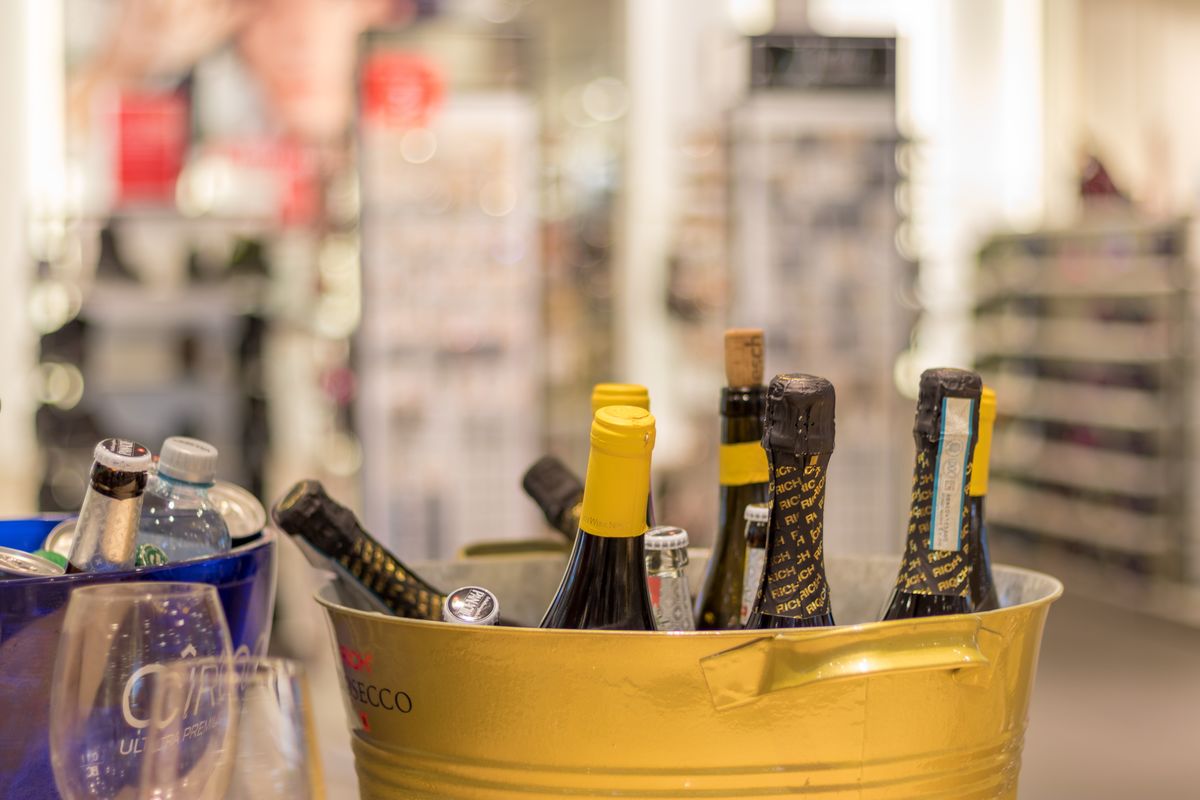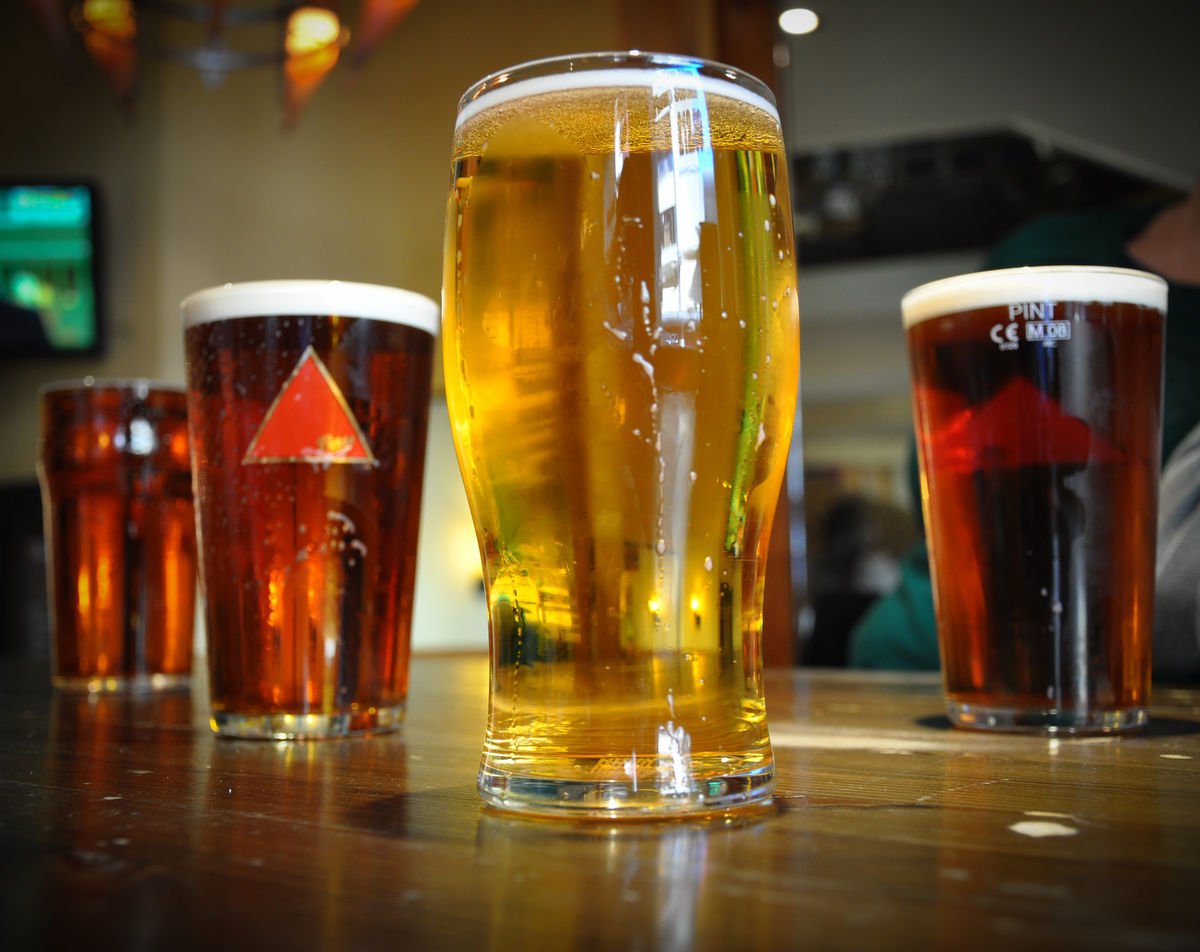Start 14-Day Trial Subscription
*No credit card required

Student Beer Consumption: Mind-Blowing Investigations Prove It Has Declined
Beer has always been considered as a harmless drink that is somewhere in-between non-alcoholic and alcoholic beverages. Grabbing a bottle of it with a bunch of friends has become a synonym of leisure, with more and more people admitting that they cannot imagine the end of their day without a drink.
However, the abuse of this less-of-an-alcoholic beverage affects people negatively. What’s more, beer addicts claim that it is much more difficult to refuse beer rather than vodka or vermouth.
Unsurprisingly, students are considered as one of the key beer consumers in the world. Stronger alcohol usually entails greater problems for underage learners. That is why beverages containing smaller amounts of alcohol were so popular at student parties.
The good news is that beer consumption is falling across the globe, and this trend refers to students as well.
However, this raises the question of whether students started drinking stronger alcohol or the alcohol-drinking era has been slowly approaching its end.
Let’s dig deeper into the problem.
Sparkling Wines. Seriously?!
If the consumption of distilled spirits and sparkling wines grew somewhere in, say, Italy, this would not surprise anyone. However, the fact is that this trend is now obvious in the US as well.
America was once considered a home of beer-culture, where all big sports games, friends’ get-togethers, and other home parties were usually accompanied with beer and cider.
Now, beer consumption is down, sending a message that the American beer industry is slowly fading. Americans go to extremes, ordering everything from sparkling wine to vodka, but avoiding beer. Some of them say they want more fancy drinks; others, who choose vodka, do not want all calories and carbs associated with beer.

Millennials Do Not Like Hangovers
Overall, millennials and Gen Z people are very different from the previous generations. They plan less, change jobs more often, are less inclined to save money for property purchases, etc.
They also have a differing attitude towards alcohol. Their refusal to drink often relates to being intolerant to terrible feelings that they may have the next day. To avoid a hangover, they often decide not to drink at all.
Millennials and Gen Z people who are now young adults or students simply cannot fit alcohol into their active lifestyle. They travel, go hiking, surf, climb, work, run their blogs. In other words, they do everything at once, and getting drunk simply does not fit their active lifestyles.
Students Save Money for a Reason
Nowadays, students are more interested in making a true difference rather than grabbing a beer and becoming drunk with a friend. They seek ways to earn more to have better opportunities. Some of them start their own businesses at the age of 18 or even earlier; others want to afford education or the most up-to-date technologies.
They lack time to rest, so they do not want to get drunk and feel bad the next day. Many of them say that they’d rather save money to order help with essay and win some time for themselves than drink gallons of beer.
The End of Fraternity House Life
Previous studies confirmed that drinking alcohol in students was closely tied to their campus lifestyle. When they leave their parents’ home, learners usually feel as if alcohol and parties are something that makes them adults.
In fact, male students living in dorms were more inclined to drink beer with their peers on a regular basis compared to their mates who lived in a rented apartment or with their parents.
Today, students are less willing to leave their parents once they go to college. They choose universities that are close to their homes and prefer staying with their mothers and fathers until they can afford a good place to live with their new families. They often reach this age when they are in their 30s.
Beer Belly
A new decade is a time when everybody thinks about the number of calories they consume. The problem of unhealthy nutrition and obesity is so common and threatening that students, as a younger generation, are more concerned about their diet. Those who do sports on a regular basis do not allow themselves mass-market juices, let alone beer or other soft drinks.
Students prefer not to drink because alcohol is associated with calories that they could avoid. For them, losses from drinking cast shadow on all benefits this activity can have (if it has them at all). Moreover, some of them say that having McFlurry is more satisfying than drinking the same calories in beer.
Weed Legalization
Many confirm that weed legalization led to significant falls in beer consumption among students. Since pot was harder to obtain, students preferred a more traditional way of getting high – drinking. As soon as marijuana became legal, the need for beer declined.
Thus, many companies have jumped into joint ventures offering such experiments as cannabis beverages. It is pretty obvious that we are likely to see weed beers in markets of those countries where it is legal, but it is yet to discover whether the audience will like such products.
In any case, for the declining beer industry, these are the actions of the last resort.
Is Alcohol Repeating Tobacco Fate?
Earlier similar trends were common for another industry, which is closely related to bad habits – tobacco. It went down from being a highly attractive substance to a seriously stigmatized one in a quite short period of time. This can be happening to alcohol too.
The times when a nice-looking man smoking a cigar was idolized are gone. Today, people admire those who are busy taking care of their health. Thus, alcohol may become one more outdated fashion that is no longer admired by the younger generation.
Thus, we can be witnessing another cultural shift that replaces trends that previous generations followed with new opportunities. Smoking is out of fashion now, and so is drinking.
That is why the decline is noticed in overall alcohol consumption, with the most noticeable trend being related to beer drinking. The drink of youth is just the first one to reflect the overall changes in the minds of people.

Final Thoughts
When writing this article, we have reached mind-blowing conclusions – is that really possible that humanity is finally on the way to global sobriety?
Is there a chance that the problem of millions will soon be solved because of global tendencies? It hardly works this way. Usually, one bad habit replaces another one.
However, let’s just imagine that next generations – whatever the names will be given to them – will be more careful about their health than we were. Let’s assume that they will be harder to lead into temptation.
Will that reflect badly on the economy of countries with a long drinking culture? How will people deal with increased overpopulation concerns due to longer life expectancy and healthier nations? This is yet to be studied.
In any case, the trend to global sobriety in people, especially the students, is something governments were working on for a very long period of time, imposing age limitations, banning sales late hours, etc. Such policies had little success, but obviously, human conscience is changing toward doing less harm to their bodies.



